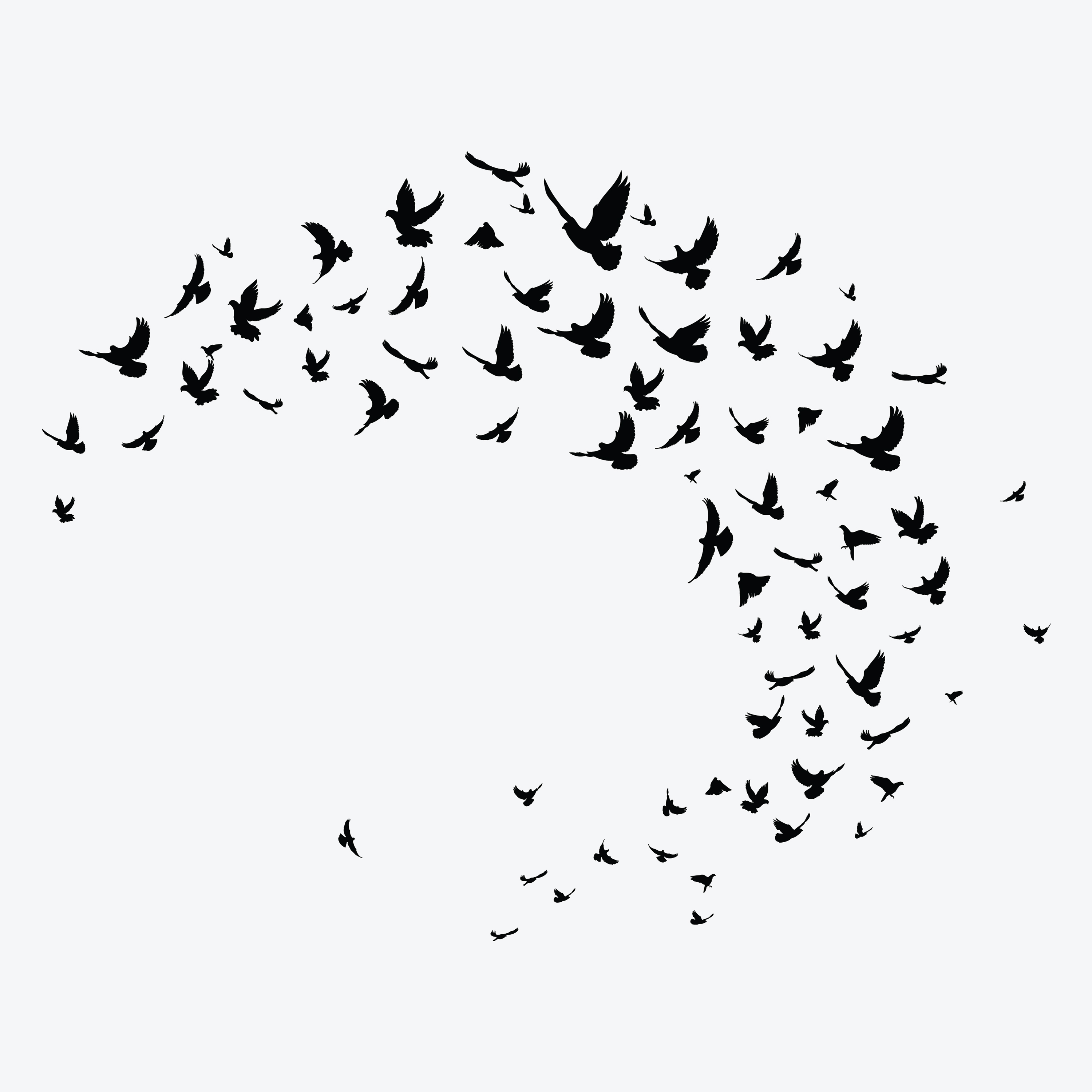Latest
Substack – A little craft
Substack – City of Angels
New Day Dawning
I waited a month to write this post.
A month after I finally retired from DEA, ending a nearly thirty-year career as a federal agent.
I can still remember my first day on the job like it’s yesterday, scared shitless, carrying a badge and gun for the first time, in Los Angeles.
I loved every new minute of it then, and every minute after.
DEA has a mandatory retirement age, something I was already staring down the barrel of, so whether I left last month or next March, I was facing the end. I’ve been blessed to have a career I loved so much; it exceeded every dream, every expectation. But as I told my three daughters, loving a career so much can be a curse too. Every decision, every choice, I’ve made for the last thirty years have revolved around my career, around that badge and gun.
It’s been a tough life at times for all of us.
Often ex-cops and agents struggle with their identity, their worth, their purpose after they retire. Maybe I will too, but fortunately, I’ve been preparing for this moment for a while…I can finally pursue full-time my other great love — writing.
After six published novels and my screenwriter and consulting producer credits on Paramount’s LAWMEN: BASS REEVES, I get to wake up every day and focus only on creative work. It’s a weird and wonderful feeling, although now that I have the sort of infinite writing time that I always dreamed about, I find myself a little uncertain how to wrangle it. I want all these new unfettered days to be productive (obviously, I want to write a lot), but I also don’t want to burn myself out, something I never had to worry about before, since I could never grab enough hours as it was.
It’s truly a nice problem to have.
But the short term my plan is to keep churning out novels and short stories, as well as screenplays. I’m also going to continue to pursue some TV and film work. I’m no longer a federal agent who also writes, I’m only a writer now, who was once a federal agent.
And my first event as a “full-time author” is ThrillerFest in New York later this summer. My last novel, Call the Dark, made the cut for an ITW award, and I couldn’t be happier. I’ll be the guy at the bar both BEFORE and AFTER the awards ceremony, drinking beer and bourbon, and looking for some career advice…
…for the first time in thirty years…
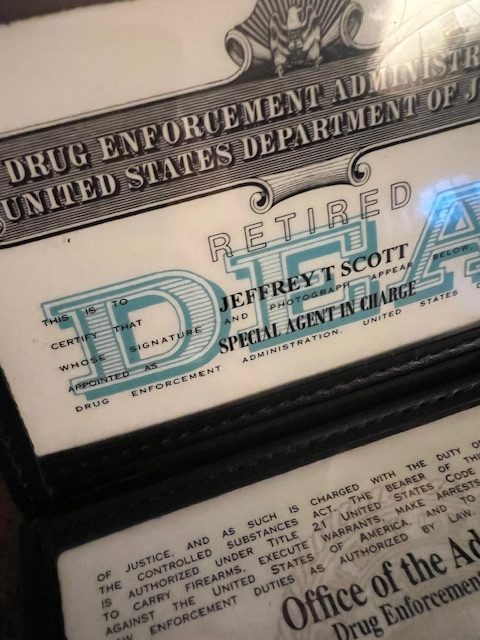
Lawmen: Bass Reeves
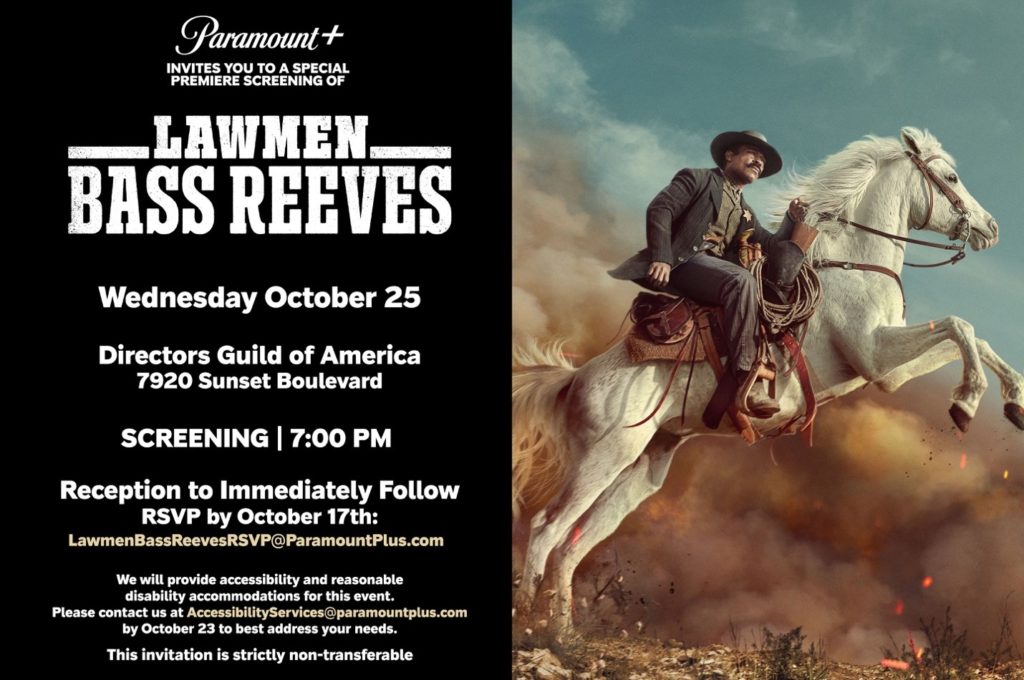
Due to the WGA strike these last few months, I wasn’t able to talk much about this project, but I was thrilled to be involved as both a writer and consulting producer on the upcoming LAWMEN: BASS REEVES show that will be out November 5th. While I contributed to the overall story and worked on all the episodes, you’ll want to pay particular attention to Episode 4, since it’s my first “solo” screenwriting credit. I worked with an amazingly talented and generous group of writers, and learned a tremendous amount (screenwriting is much different than novel writing). This sort of work will never replace my love of novels, but I enjoyed it quite a bit, and look forward to having another chance to work on something like this again! Last week I went to LA for the premiere of the first two episodes, and it was unbelievable to see my work come to life on the big screen.
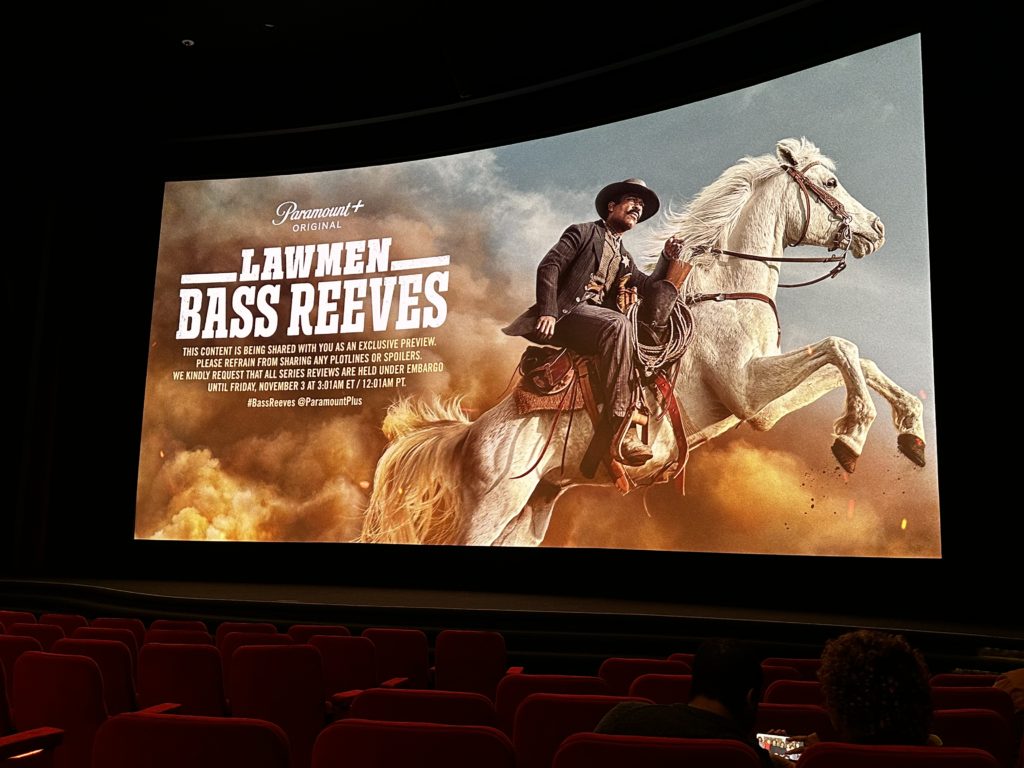
Call The Dark
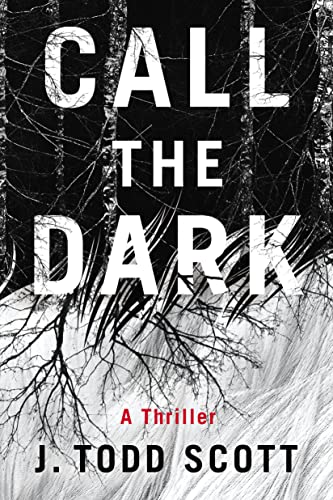 Tuesday, September 19th will see the release of my sixth book, CALL THE DARK, seven years after my debut – THE FAR EMPTY.
Tuesday, September 19th will see the release of my sixth book, CALL THE DARK, seven years after my debut – THE FAR EMPTY.
Honestly, the two books couldn’t be more different. Hell, I couldn’t be more different, both as an author and maybe as a person.
Most of my novels have been driven by characters I’d fallen in love with or themes that I’d always wanted to explore. THE FAR EMPTY and the two other books in the Big Bend/Chris Cherry trilogy (HIGH WHITE SUN and THIS SIDE OF NIGHT) examined the “weight of the badge;” the burden and the responsibility that comes with carrying them, and whether you can continue to be a “good” person in a bad world. Chris Cherry and America Reynosa were already strongly fixed characters in my mind when I wrote those books, before I even wrote the first word, and they lived and breathed in that series, animating much of what others would call “plot.”
LOST RIVER was about the opioid epidemic and rural America. It was about my home state, about homecomings, and things I’d seen and experienced as a federal agent while working here. It was personal in a way that even the Big Bend books weren’t, and I had Trey Dorado’s voice in my head for weeks, and the character of Van Dorn reflected a type of agent and personality I’d encountered in my long career.
THE FLOCK, which was less a crime novel and more a topical thriller – more topical than I first imagined since I wrote during the pandemic – was a thematic exercise for me. I’d always planned to write a novel about a cult, very much wanting to raise questions about faith and belief, and the limits of both. I’d been fascinated by how someone’s truth is often mutable, and the way the media can and sometimes defines our truth. The aging Elise Blue, a character I loved writing, reflected a lot of my concerns about both aging and parenting.
CALL THE DARK is very different from those previous books. I wrote it after tossing away 100 pages of another book I was writing (okay, writers never quite “toss pages away,” we just save ‘em and hope we can make them better). CALL THE DARK didn’t start with a theme I’d long wanted to explore or even a character I’d been thinking about or a character’s voice in my head, it started with an image—a striking image of a small plane crashing on a remote mountainside during a late night snow storm; a fiery wreck observed by a lone woman, who’s burying…something…in the frozen ground.
Who that woman is, why she’s out that mountainside in the middle of the night, and what she’s burying, were things I only discovered while writing. This book has more of a cinematic, high-concept feel maybe than anything I’ve done (maybe that was because while I was writing it, I was also writing on the upcoming LAWMAN: BASS REEVES cable series). While it deals with some of the themes I always return to again and again (family, choices, guilt) it’s not a message book. I do hope it’s entertaining and thrilling, though. It’s a very different book for me, but again, I’m a different person too, a different writer. The longer I walk this path, the more novels I get under my belt, I’ve come to learn that each book is a process in and of itself; each new novel is a new exploration, a new journey. Each one is surprising in its own way, even if you don’t end up where you thought you would.
It took me several months to get that young woman off that mountain. Hopefully it won’t take you that long to pick it up and find out how I did it.
JTS
Book Club!
October 12, 2022
Contact: mesillavalleybookclub@gmail.com for the Zoom invitation
Or sign into Zoom: (Meeting ID: 822 1024 2285 Passcode: 463198)
Phone: 575-491-5041
Mesilla Valley Readers of Southern New Mexico Hosts Author J. Todd Scott
The Mesilla Valley Book Club invites you to a discussion with author J. Todd Scott, on Thursday, November 10, 2022 from 4-5 PM (MT) via Zoom.
Award winning novelist, J. Todd Scott, a 25-year veteran of the DEA, will discuss his most recent publication. From http://jtoddscott.com/ The Flock is a chillingly engrossing thriller about a cult survivor who must confront the horrors of her past to ensure the safety of the future.
Ten years after a fiery raid kills her family, former cult member Sybilla “Billie” Laure has a completely new identity. She’s settled in rural Colorado with her daughter, hoping for a quieter life. But the world has other plans.
With wildfires raging and birds dropping from the sky, Billie wonders if her cult leader father’s apocalyptic predictions are finally coming true. When an intruder murders her husband and kidnaps her daughter, Billie has no choice but to confront the secrets of her past. But Billie’s journey has other perils, too―namely, a police chief hot on her trail, determined to expose the dangers of the defunct doomsday cult.
To save her daughter, Billie will have to go back to where it all began―to the ruined compound in New Mexico where the real threat is the truth.
Scott will discuss his research techniques, writing style and methods, and his other award-winning works: the trilogy of award-winning novels featuring Sheriff Chris Cherry of the Big Bend with ties to El Paso and the stand- alone novel, Lost River, a blistering crime novel of the opioid epidemic set in Kentucky and published in 2020.
The World Burns Bright
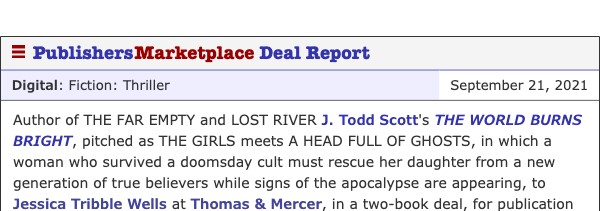
WHERE WE ARE 2021 or HOW TO (POSSIBLY) ALIENATE ALL YOUR FANS
As I’ve said numerous times, writing is art, but publishing is a business.
A professional writing career is the successful, consistent, convergence of those two things.
But by the time I started seriously writing, I already had an established, time-consuming career (federal agent) that’s kept a roof over my head and the lights on for nearly three decades. THE FAR EMPTY, my debut novel, was written in the midst of that career; written out of pure passion and a burning desire to tell stories. Writing was truly a hobby, something I did in my spare time. And although I got an agent, I had little expectation that THE FAR EMPTY – or frankly, any book of mine – would sell. Now, five years later, I’ve had four novels published – three in the Big Bend/Chris Cherry series and last year’s stand-alone, LOST RIVER – was brought on for two great anthologies, and even hired to write on some film/TV projects.
My hobby became a pretty decent “second” career as well.
And trust me, I’ve been incredibly blessed and fortunate, lucky beyond belief, experiencing far more success than I ever could’ve dreamed of or deserve. But like every published writer, I’ve had my share of frustrations too. Publishing is a harsh, at times arbitrary business. For all the pre-publication talk about how my true-life experiences as a federal agent would translate to interest in my stories (all of which to date have touched on DEA and/or the Border in some measure), that never seemed to quite pan out, despite the books enjoying great reviews and loyal readers. Similarly, I suffered the same fate as many authors who published in 2020, a “lost” book – the aptly named LOST RIVER – that ultimately succumbed to little fanfare during the pandemic. LOST RIVER was an intimate, first-hand look at the opioid crisis, released in a year when more than 90k people succumbed to substance abuse disorder. Again, it was a timely book drawn on real-life experiences. Again, it was generously well-reviewed. Again, it didn’t quite catch fire the way I’d hoped.
Those four books were published by one of the oldest, most honored imprints in the business. Putnam’s been a wonderful home, and they loved those books as much I did. I have a great agent who’s been supportive of every decision and crazy idea, and has worked hard to make those ideas a reality. But the reality of publishing for every author is there are so many great books released each year, and the opportunities for any individual book to spark so fleeting, even success can feel like failure.
But as I wrote back on this very blog in October 2020, my “real” career affords me the luxury to constantly reassess my writing one, because the writing doesn’t keep the lights on. Although I’d love to publish every year like clockwork, I don’t have the pressure to just get a book done, any book, even one that’s not working. I can chase wild ideas, take chances, and truly write the stories I want, only those I’m most passionate about in the moment. That doesn’t mean anyone will ever publish them, but no one can stop me from writing ‘em.
So here we are—
Author of THE FAR EMPTY and LOST RIVER J. Todd Scott’s THE WORLD BURNS BRIGHT, pitched as THE GIRLS meets A HEAD FULL OF GHOSTS, in which a woman who survived a doomsday cult must rescue her daughter from a new generation of true believers while signs of the apocalypse are appearing, to Jessica Tribble Wells at Thomas & Mercer, in a two-book deal, for publication in fall 2022, by Carlisle Webber at Fuse Literary (world).
This is the book I alluded to back in October that I was tentatively calling THE ARK (and the title will likely change again, as these things often do). I wrote it during the teeth of the pandemic. I wrote it while I was moving from Texas to Kentucky; I wrote it while I was taking over a new job title at DEA and assuming a whole new slate of responsibilities for not one but three states; I wrote it on my laptop in hotel rooms and in the back of my car; I wrote it whenever I could steal a few minutes because my tried-and-true writing process was shot all to hell due to the move and the job and the pandemic and a host of other reasons.
The main thing is – I wrote it because it was the story I was burning to tell.
But here’s the disclaimer – the hard part to say out loud to all the generous fans I’ve gained since THE FAR EMPTY debuted – it’s ALMOST NOTHING like my other crime novels.
Hell, I’m not sure it technically is a straight crime novel.
It’s not about DEA or the Border or any of that stuff. It’s not about agents or dope or cartels. It’s less Don Winslow and CJ Box and more Paul Tremblay or Josh Malerman or Riley Sager. There’s maybe more Stephen King than Craig Johnson, and those who’ve listened to my readings or appearances know that I was actually agented on a ghost story. But it’s the story I had in my head – in fact, I’ve had a version of it rattling around for a while – and it’s one that allowed me to stretch and challenge myself as a writer and try something totally new, particularly when I didn’t really feel the other books were breaking new ground. And although I think it has some of the best traits of all my books – interesting, flawed characters and a dark beating heart – I know that for those fans – those of you – who were ready for another Chris Cherry book, or even something in the vein of LOST RIVER, it’s going to be a helluva pivot. Maybe too big a pivot, and I get that, but I sure hope some of you follow me down this new dark path for a bit anyway.
I took a chance writing this book. I hope you give it a chance too.
That doesn’t necessarily mean I’m done with the Big Bend, over even a spin-off from LOST RIVER. I have parts of both of done, and would love to return those worlds when the time and home is right.
But until then, here’s hoping THE WORLD BURNS BRIGHT catches fire in 2022.
Writing is art but publishing is a business. A professional writing career is the successful, consistent convergence of those two things.
I’m thrilled to see what Jessica and Thomas & Mercer have planned for this book and the next, because although I’m slowly winding down my DEA career, I’m still at the start of this whole writing gig, and I have a lot of stories left to tell.
SEE YOU IN 2022
